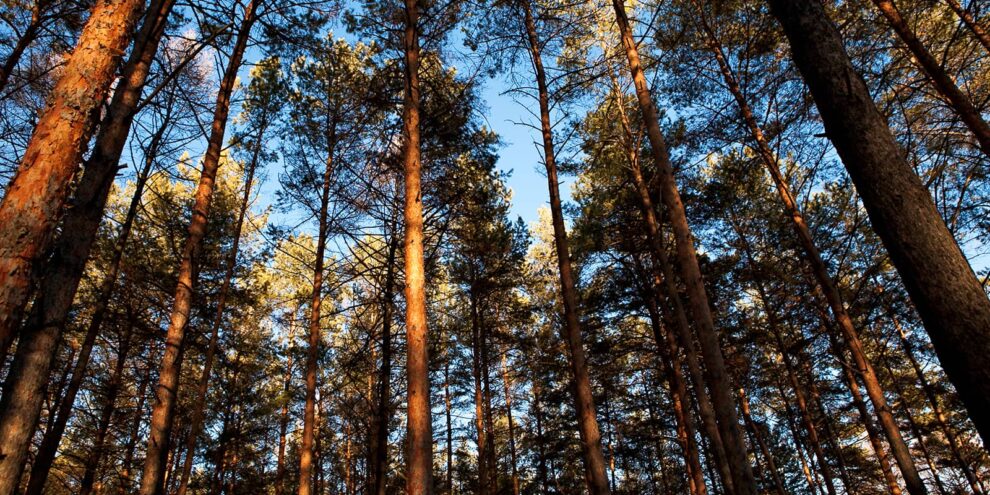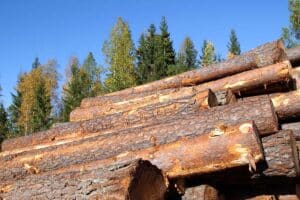Investors prefer assets that do not correlate with the stock market because they lower the risk of their entire portfolio. Uncorrelated assets diversify portfolios. When one asset falls or flutters, another goes up or holds steady. This makes timberland investments attractive, as their return characteristics exhibit some “independence” from the overall market.
Updated Research on Timberlands versus Timber REITs
The “indifference” of timberlands to other assets is part of what makes it diversifying. However, the correlations and implied diversification benefits vary across timberland investment vehicles. Recent research by forest economist Jack Lutz speaks to this reality. In the Q2 2024 Forest Research Note, Dr. Lutz evaluates relationships between returns for the S&P 500, public timber REITs (as tracked by the Forisk Timber REIT (FTR) Index), and private timberlands. He finds that while the NCREIF timberland index “has never been correlated with the equity indexes,” the correlation of returns for timber REITs and the S&P 500 “has become much stronger over time.”
These results remind us that owning shares of timber REITs differs from holding private timberland. When you acquire shares in a timber REIT such as Weyerhaeuser (WY), Rayonier (RYN) or PotlatchDeltic (PCH), you own a small piece of a public corporation, over which you have no control unless you have a controlling interest. And this firm happens to generate revenue from growing and selling trees and related activities in multiple geographies. In theory, shares of timber REITs rise over time because they account for the trees and other products being produced and sold. As the economy improves, so do revenues and, assuming stable margins, profits to shareholders. In practice, the extreme liquidity of timber REIT equities also diminishes their diversification potential. As noted by Dr. Lutz, timber REITs basically correlate to the S&P 500 over time.
Timberlands are real assets that require real work. Direct timberland investing means buying into an operating business that produces and supplies raw material to wood-using manufacturers located within economically viable distances of the forest in specific timber markets. We learn to analyze timber markets to identify and account for the opportunities and risks of each property, which essentially comprises a bundle of diversified businesses. These may provide income opportunities with recreational leases, cell phone towers, forest carbon, real estate, and other ventures that affect the value of the asset and the associated streams of operating income. In this way, investors hold timberlands for reasons that are largely diversifying.
This content may not be used or reproduced in any manner whatsoever, in part or in whole, without written permission of LANDTHINK. Use of this content without permission is a violation of federal copyright law. The articles, posts, comments, opinions and information provided by LANDTHINK are for informational and research purposes only and DOES NOT substitute or coincide with the advice of an attorney, accountant, real estate broker or any other licensed real estate professional. LANDTHINK strongly advises visitors and readers to seek their own professional guidance and advice related to buying, investing in or selling real estate.










Add Comment